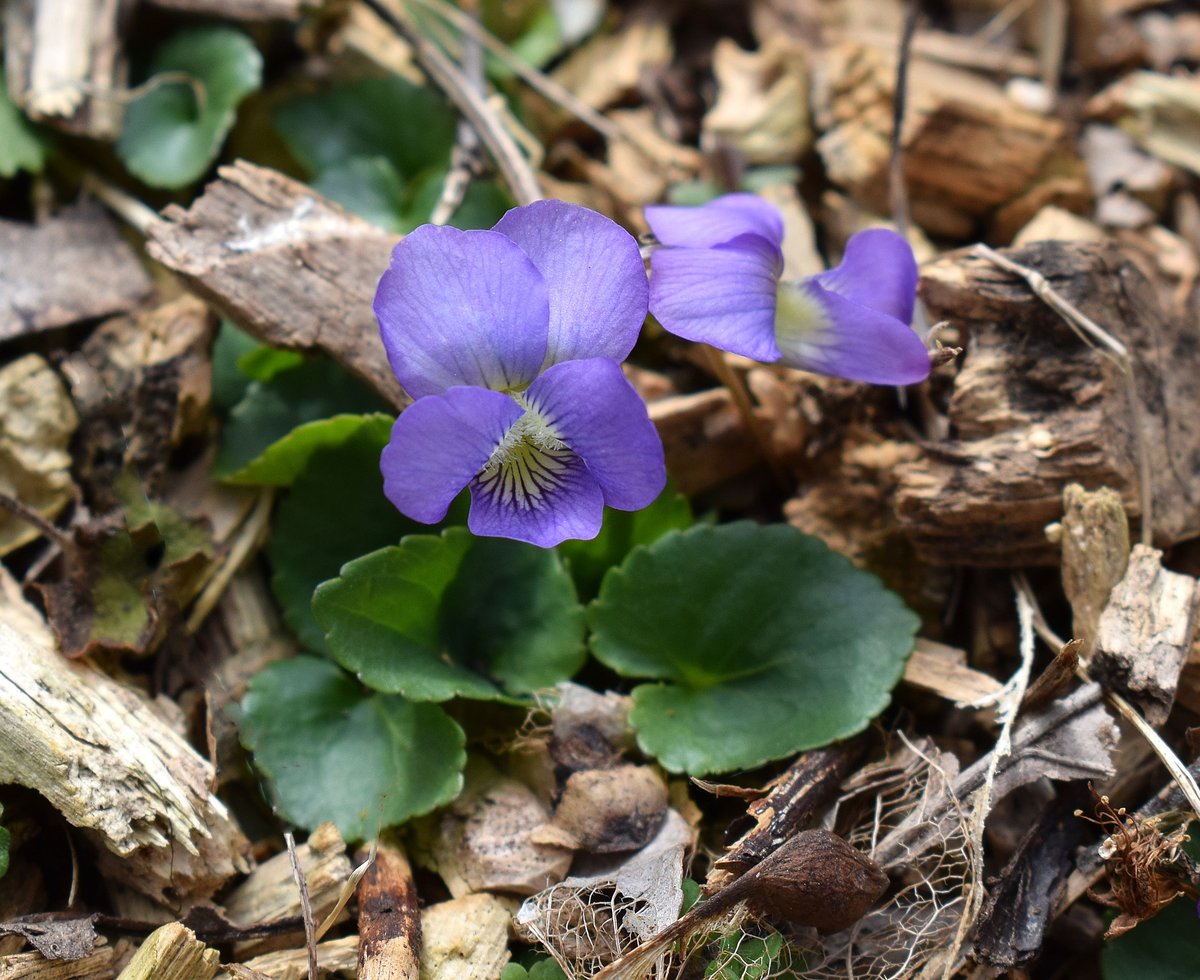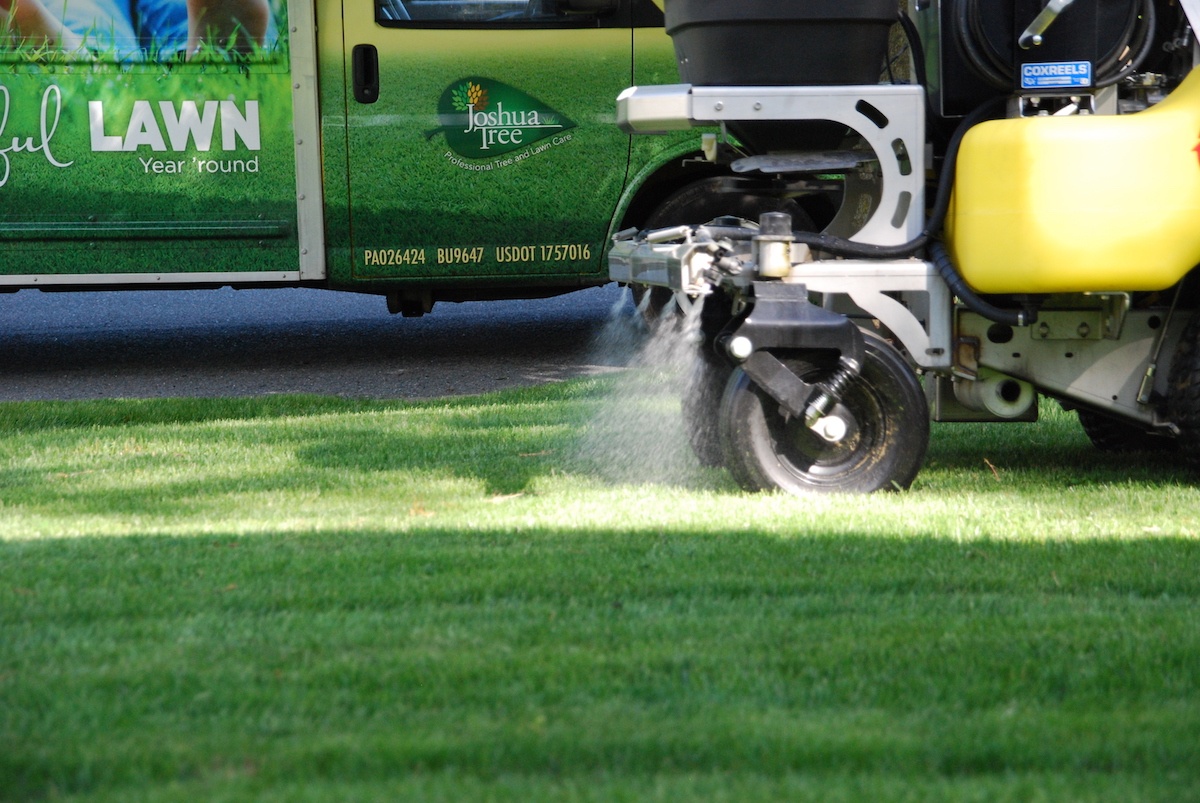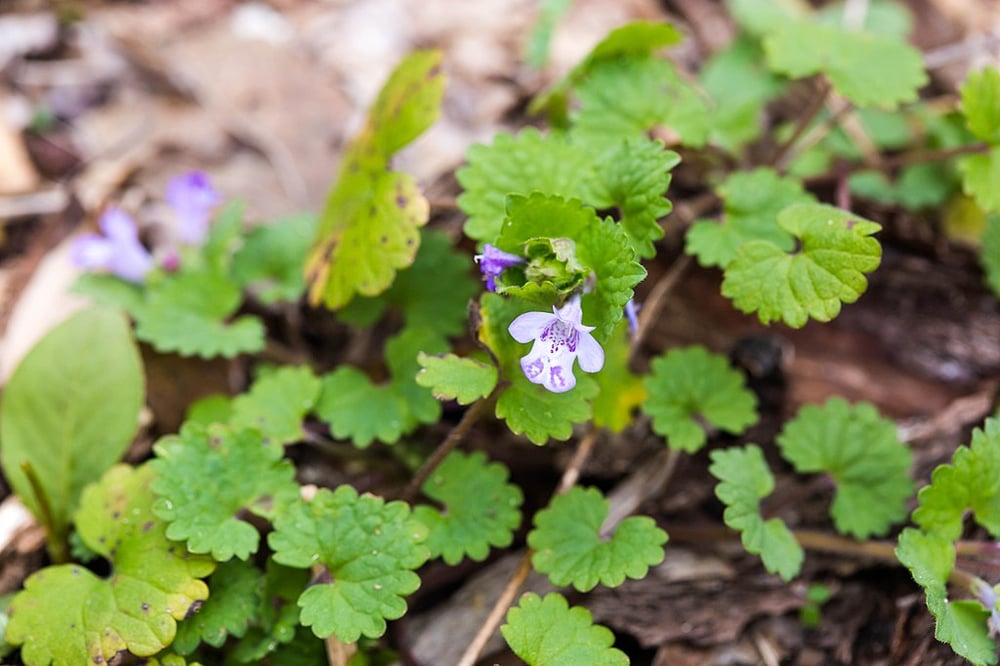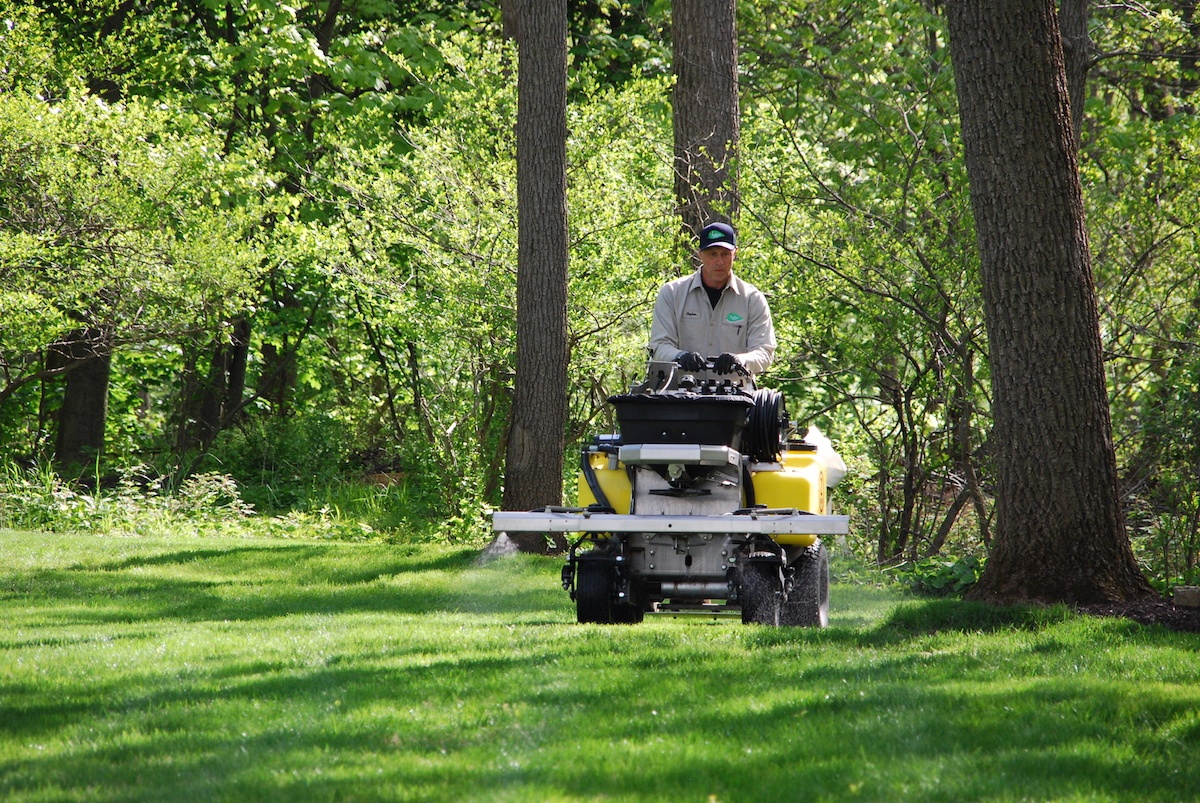Ground ivy and wild violets in the lawn can be a significant nuisance. It may feel like each year brings an increase in these stubborn weeds, and despite your efforts, they remain difficult to eliminate.
You’re not just imagining it. The truth is, the aggressive nature of both ground ivy and violets makes these weeds two of the toughest to get rid of. Your fight against them can almost feel futile as they seem to fight back harder.
When it comes to getting rid of wild violets and ground ivy, you’ll want to take the mentality of “losing the battle but winning the war” to heart. It’s going to be a long road, but the right treatment approach by a professional can get you there.
A Closer Look at Violets in the Lawn
These low-growing broadleaf weeds are highly shade-tolerant but will also grow in sunny areas. The flowers on wild violet can be white, blue, purple, or yellow.
They may look small and delicate, but wild violet is quite aggressive and can produce thick mats of leaves that end up depriving the rest of your lawn of nutrients.
Unfortunately, violet weeds are difficult to get rid of because of their extensive root systems, their waxy leaf covering, and their fast-growing (and fast-spreading) tendencies.

Killing Wild Violets in Your Lawn
Getting rid of violets is no easy task. Hand-pulling violets won’t get you very far due to their strong roots. It’s very difficult to pull a wild violet without leaving at least some of the root in the ground, meaning it’s going to grow right back.
Granular products don’t work well to kill violets, either. That’s because not enough of the product will coat the leaves. Even if you’re lucky enough to get a few flakes on the leaves, it’s not going to be effective enough to work.
The key to killing violets in the lawn is a professional-grade broadleaf liquid herbicide that will stick to the leaves and ultimately knock wild violets back.
This must be coupled with a long-term strategy, including spraying multiple times a year, particularly in the fall when certain products are able to be used in cooler temperatures.
In addition to spot treating the violets repeatedly from spring through fall, you’ll also want to focus on a lawn care program that encourages a healthy and thick lawn.
Because violets thrive in sparse lawns, the thicker your lawn is, the more likely it will choke out these pesky weeds.

Thickening your lawn can be achieved with a program that incorporates regular fertilization, looks at improving the soil with necessary pH corrections, and includes aeration and overseeding every fall.
With these steps, your violet problem will improve but may take a lot longer than you anticipate. These are weeds that just don’t like to give up and it shows. But if you stay on top of these efforts for the long-term (and consistently), you’ll absolutely see a difference.
A Closer Look at Ground Ivy Weeds
Like violets, ground ivy, which is also sometimes referred to as “Creeping Charlie,” is incredibly aggressive. It grows in thick mats in areas of your lawn and can quickly become a major problem.
Ground ivy can form extensive patches as it “creeps” across your lawn, crowding out desired grass in the process. As it creeps along the soil surface it will form roots where its leaves join its stems.
Killing Ground Ivy
Much like violets, there is no surefire ground ivy killer out there. This is a very tricky weed to pull since its roots are so tangled and invasive. You may break a bunch of it off and it will just grow right back.
The best way to approach killing ground ivy is the professional application of a liquid broadleaf herbicide with a long-term strategy that includes multiple treatments from spring through fall.

In addition, like violets, you should also be sure to incorporate a lawn care program that is focused on thickening your lawn as this will naturally choke out the spread of ground ivy.
Choosing a Lawn Care Company to Win the War on Tough Weeds
While it may feel like the battles against these weeds are never-ending, when you choose to work with a lawn care company that employs a long-term strategy against tough-to-control weeds like violets and ground ivy, then you’ll finally start to see some light at the end of the tunnel.
With the right approach, you’ll see these weeds lessening each year as your thick and healthy lawn fills in. Of course, when it comes to combating aggressive weeds, you absolutely must keep up with a proactive annual program.
Even taking just one year off could land you right back in a mess. But with the right care, performed regularly, you can stop feeling like progress is hopeless and start seeing the results you desire.
With the right care for your lawn, you’ll gain valuable peace of mind. If you’re interested in having your lawn inspected and its health assured, contact us for a free quote or give us a call at 833-JTE-TREE.
Image Sources: wild violets, ground ivy




